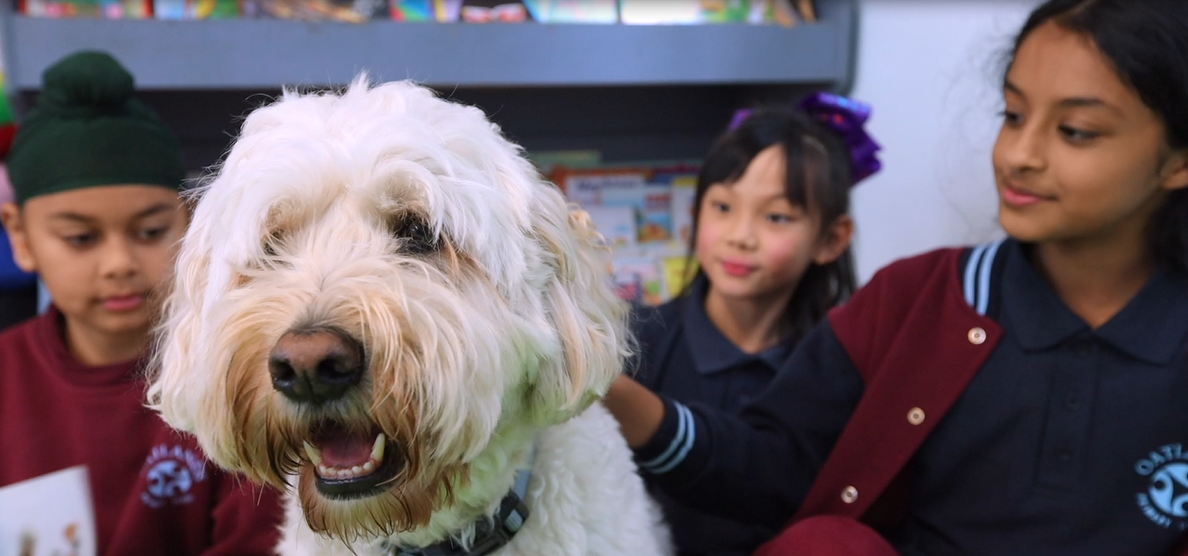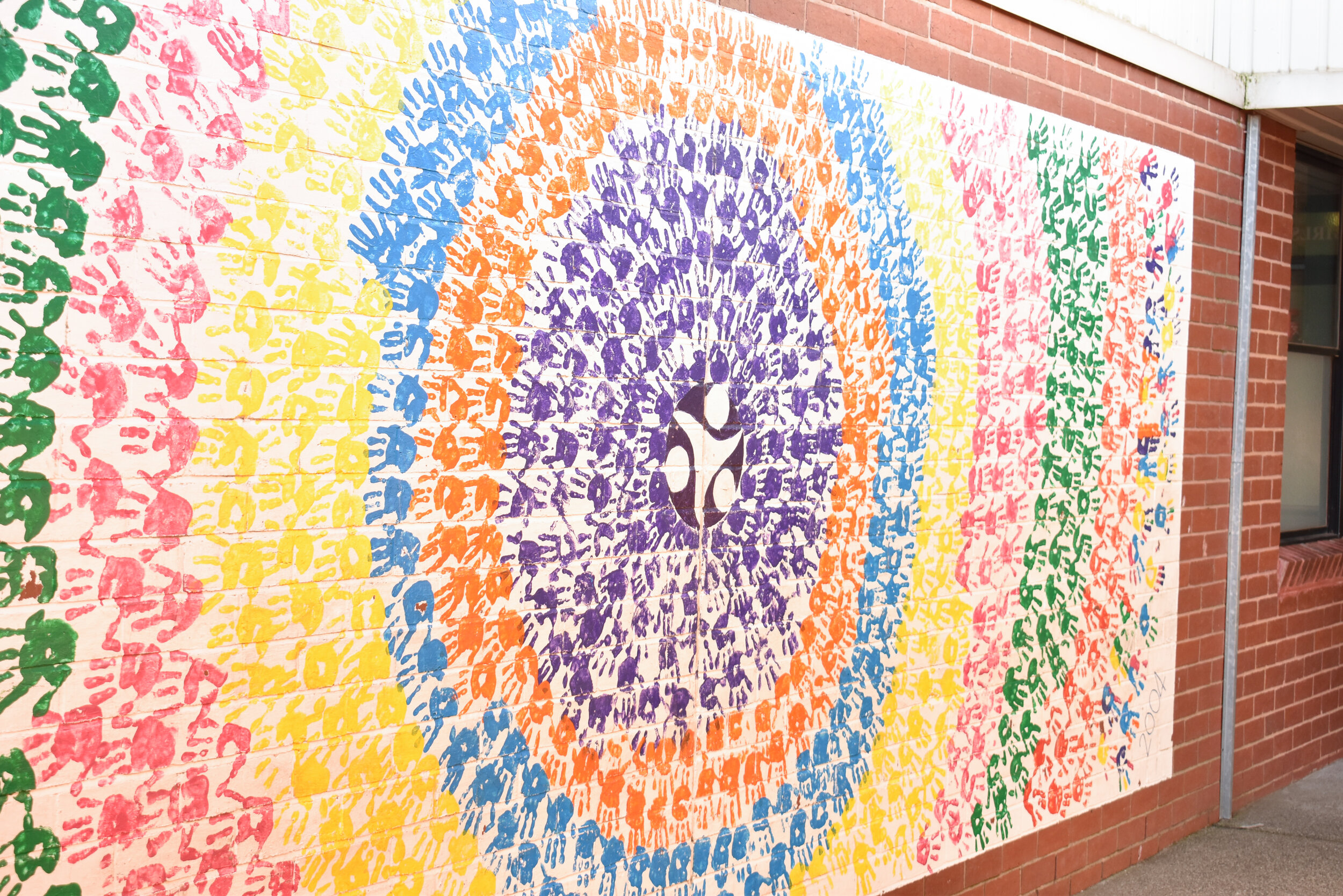
WELLBEING
WELLBEING PROGRAMS
At Oatlands Primary School, our students’ mental health and wellbeing is a high priority.
We facilitate a range of programs and wellbeing initiatives at the school:
At Oatlands the Respectful Relationships Program is implemented across the school from Prep to Grade 6.
The implementation of the Respectful Relationships Program supports the promotion and modelling of respect and equality, and assists to teach our students how to build healthy relationships, resilience and confidence.
URSTRONG is a friendship program that teaches children how to put a voice to their feelings, create healthy friendships, and build a solid Prep for future relationships. Explicitly teaching children how to develop healthy friendships and manage conflict in a positive way is at the heart of helping them flourish - https://urstrong.com/
The Zones of Regulation is a curriculum full of a range of activities to help children develop skills in the area of self-regulation. The program uses four colours blue, green, yellow, and red to help students identify their feelings and level of alertness. Teaching students how to read their body’s signals, detect triggers and consider how their behaviours impact those around them, leads to improved emotional control, self-awareness, and problem-solving skills.
INCLUSION AND WELLBEING
Disability Inclusion
Disability Inclusion is part of the Government’s approach to inclusive education. It aims to provide extra support for students with additional needs in Victorian Government schools. Our Inclusion Leader manages the Disability Inclusion program. At Oatlands Primary School we strive to provide a high level and quality of support for our students who present with additional needs. Our staff all apply inclusive practices to ensure we provide an inclusive school culture for all students and families at Oatlands.
If you have a child with additional needs, please ask to speak with a member of our student wellbeing team upon enrolment.
Wellbeing/Allied Health Staff
We are fortunate to have a range of multidisciplinary support services available to our students, including:
● Psychology – We have onsite support through our school psychologists who work as part of our student wellbeing team. Our school psychologist’s complete cognitive, learning and behavioural assessments, run groups, offer teacher and classroom support, and make recommendations to improve the learning and overall well being of all our students. They are also involved in our prep transition program. Parent consent is only required if students will be accessing the psychologists for formal assessments or specialised support.
● Speech Pathology – We have onsite speech pathology support through our speech pathologists who also form part of our student wellbeing team. They do not offer individual therapy to our students, instead they complete assessments, assess students for suitability for some of our intervention programs, educate teachers on how to support students with speech and language difficulties and run groups. Parent consent is only required if students will be accessing the speech pathologists for formal assessments or specialised support.
● Occupational Therapy – We have a private OT onsite two days a week who only sees OPS families. This is a fee-paying service that families can access rather than visiting OT sessions outside of school hours. Waitlists are shorter and students can be seen during school hours. The OT consults with parents and teachers to ensure positive outcomes for our students.
● Counselling – We have access to a counsellor part-time through Head Space. This service is reserved for students who are experiencing school-based issues. We direct families to private services when children may require counselling for issues pertaining to their home life. Please enquire for more information.
As a school, we also have access to DET student support services and visiting teachers who can assist us when working with children with a range of different needs.
Intervention Programs and Lunchtime Clubs
Oatlands PS offer a variety of Literacy, Numeracy and Social Skills intervention programs that support our students across different year levels.
At Oatlands, we offer a variety of engaging extracurricular activities to support students' development. Our rotating clubs include STEM, lego, chess, RoboCup and robotics, held in the school library. These clubs help students build essential skills like problem-solving, teamwork, and creativity in a fun and supportive environment.
Additionally, our school psychologists and speech pathologists run Social Skill programs such as Lego™ Legends and Kids In The Kitchen. These programs enhance student’s social communication skills through collaborative play. These programs focus on teamwork, conversation skills, and social interactions in a relaxed, enjoyable setting.
All our programs aim to foster academic and social growth, empowering students to explore their interests and develop essential life skills.

CYBER SAFETY
The Cyber Safety Project
Our commitment to the Responsible Use of Digital Technologies
At Oatlands Primary School we are committed to building a culture of respect and responsibility. We show this in the way we use technology and interact online. We teach our students about responsible digital behaviours, including how to recognise and respond to online dangers and threats. We support students in developing the digital skills they need to make a positive impact in the world. We carefully consider the integration of digital tools into the curriculum. We utilise these to provide rich, interactive and personalised experiences while ensuring a balance with offline learning opportunities.
It is integral to establish clear protocols and procedures when working in online spaces, including reviewing and considering the safety and appropriateness of online tools and communities. Please use the resources below to assist your family with online safety:
Cyber Safety Project
https://www.cybersafetyproject.com.au/
Office of the Children’s eSafety Commissioner https://www.esafety.gov.au/
THERAPY DOG PROGRAM
Research shows that dogs are remarkable at lowering stress and anxiety levels and in doing so often defuse imminent explosions of frustration or negative behaviours. They can be a great way to encourage desirable behaviours and teach children to be calm in the school setting. Children find the non-judgmental company of a therapy dog the perfect fit when they need support. Research also shows the benefits of having therapy dogs working with children who have additional needs. Some children have special time with the therapy dogs built into their Individual Education Plans and reward systems.
MEET ARCHIE - Archie is a 10-year old Groodle who has been part of our school community since he was 6 months old. Archie spends most of his time in the Student Wellbeing Office under the direct supervision of one of our school psychologists, Holly Wilson. Archie is an accredited therapy dog who underwent intensive training to work in a school setting. He notices signs of anxiety and stress in children (and adults) and often responds by ‘checking in’ by sitting next to them, nudging them with his nose or offering them his paw. Archie loves it when people reciprocate with a pat. Fun fact - patting an animal can help to alleviate stress or anxiety! Archie loves to spend time visiting classrooms and working alongside the students. He also loves the special attention he receives from parents and staff! Archie is extremely patient, loving and loyal and he is a great companion to the staff and students at our school.
MEET COCO - Coco is a 2-year old Cavodle who has recently joined the team at Oatlands Primary School. She is the smallest, cutest and cuddliest member of the Oatlands team. You’ll find Coco in with Mrs White our Assistant Principal of Student Wellbeing. Coco helps support children who may be feeling heightened and need support calming down. Coco can join in class activities with Mrs White, or sometimes she just sits quietly in the classrooms or offices while being patted. Coco especially loves it when children read to her, play with her or show her their great work! Coco is an incredible asset to the Oatlands school community.
BUDDY PROGRAM
The Buddy Program at Oatlands Primary School provides the students, staff and community with a program that is designed to develop physical, social and emotional wellbeing. The program is implemented across the school, and it supports a safe and happy environment.
The Buddy Program is designed to provide support and build relationships between junior and senior students, peer to peer and student and teacher. By applying the student-help-student principle, it empowers students to grow in confidence and responsibility.
AIMS:
To feel connected to school and peers
To create an inclusive environment and the mentoring and leadership skills of senior students
To assist in the development of positive relationships and connectedness among students
To develop positive cross-age relationships
To contribute to a friendly and caring school culture
To develop the Year 5 & 6 students’ sense of responsibility and leadership skills
At Oatlands all Prep students are allocated a Year 5 buddy to support them with their transition to Primary School. The role of the Senior Buddy is to build a positive relationship with the younger student, to be a positive role model for the student to look up to, and to share a joy of learning and being a student at Oatlands.
Buddies will meet formally throughout each term and engage in activities that build relationships, provide opportunities that develop leadership skills in our Year 5 & 6 students and assist our Prep & Year 1 students to have positive interactions with others whilst developing confidence, social skills and independence. The Preps and Year Fives are matched up according to personality, needs and interests. Teachers will work collaboratively in selecting and planning buddy activities designed to develop positive and supportive relationships.
The Prep – Year 5 buddies continue for a second year, with the same students remaining buddies as they move into Year 1- Year 6.
This ensures a strong friendship is built and younger students continue to feel supported by their elder peers while at school. All new students to the school in Years 1 and 6 will be buddied with a classmate by the class teacher to support their transition.
Our Grade 2-4 classes will form brother/sister partnerships across the school where they will engage in buddy type activities without any of the formalities of the official Buddy Program. These partnerships will assist children to develop positive and supportive relationships with a variety of students from different year levels.







